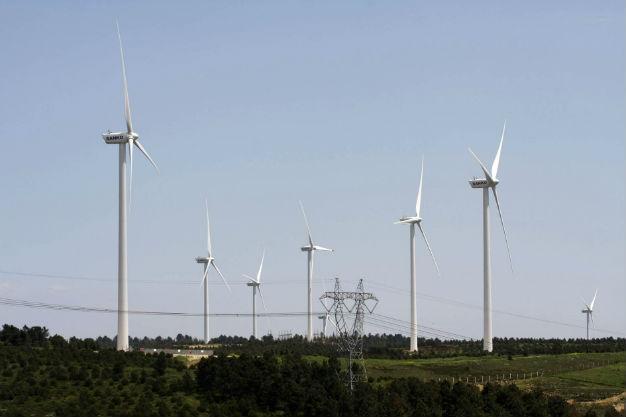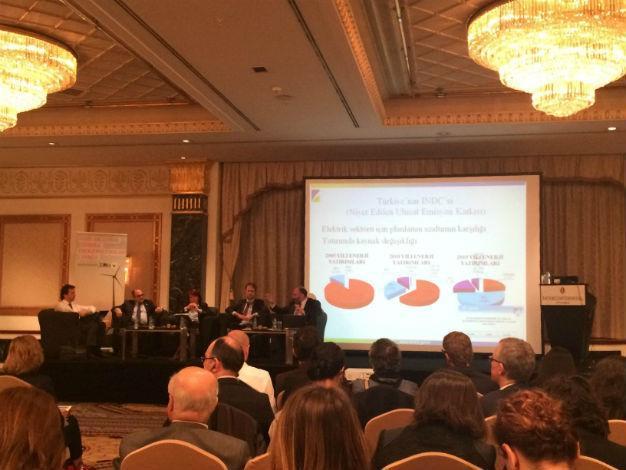Turkey has potential for solar, wind power: Energy producers
Öykü Altuntaş – ISTANBUL / Doğan News Agency
 Turkey has fantastic potential for developing solar and wind power, according to participants at a climate panel in Istanbul.
Turkey has fantastic potential for developing solar and wind power, according to participants at a climate panel in Istanbul.“Renewable energy offers opportunities to reconstruct the region. These energies can work together well, as we live together well, I project. I cannot see an alternative to the development of renewable energy with respect to the United Nation’s sustainable development goals,” said International Solar Energy Society (ISES) Turkey Chairman Kemal Bayraktar at the “Energy Policies after Paris” panel, which was organized by Greenpeace Mediterranean, WWF-Turkey and the Turkish Foundation for Combating Soil Erosion (TEMA).
The United Nations Climate Change Conference in Paris in late 2015 called for a transformation in energy.
As the “conditions” in Turkey and the region transform, “the game should be remade,” Bayraktar said.
The decisions in Paris support efforts to bring in wind power, said Turkey Wind Energy Association (TUREB) Chairman Mustafa Serdar Ataseven, underlining that Turkey’s wind power potential was 25-30 percent higher than Europe’s.

Turkey’s wind power has developed and wind power plants that will have 956 MW of capacity have been commissioned, he said, calling for the efficient planning of government policies and strategies, as well as the necessity for investments including transformer stations and transmission lines.
Germany installed a wind plant with a 6,000 MW capacity in 2015 alone, but Turkey only succeeded in installing 4,800 MW, he added.
‘Managing a system founded on fossil fuels is a challenge’
Nilgün Açıkalın from the Energy and Natural Resources Ministry praised “co-producing policies” while noting the state’s efforts to avoid “aggressive targets.”
According to Açıkalın, as a developing country, Turkey will have different targets, strategies and policies in comparison to European countries. “We have founded a system based on fossil fuels; therefore, managing the system is harder. We are not able to ask for support if there is an interruption against the system,” she said, underlining the security of supply and the durability of electricity.
According to Açıkalın, Turkey’s share within these established energy sources reached 40 percent after the Renewable Energy Law was enacted in 2005. Meanwhile, she praised Turkey’s share of natural gas, which is close to 46 percent, in comparison to other sources such as coal.
















